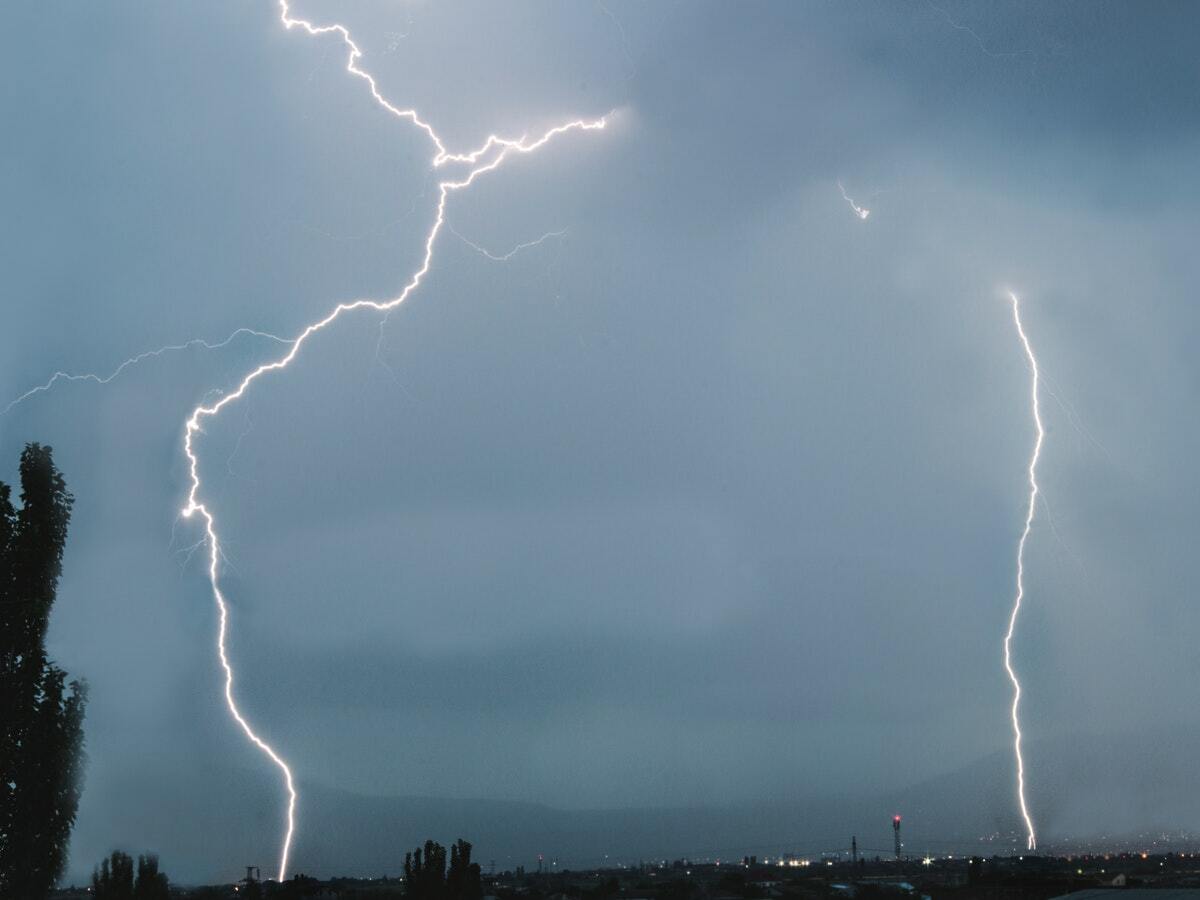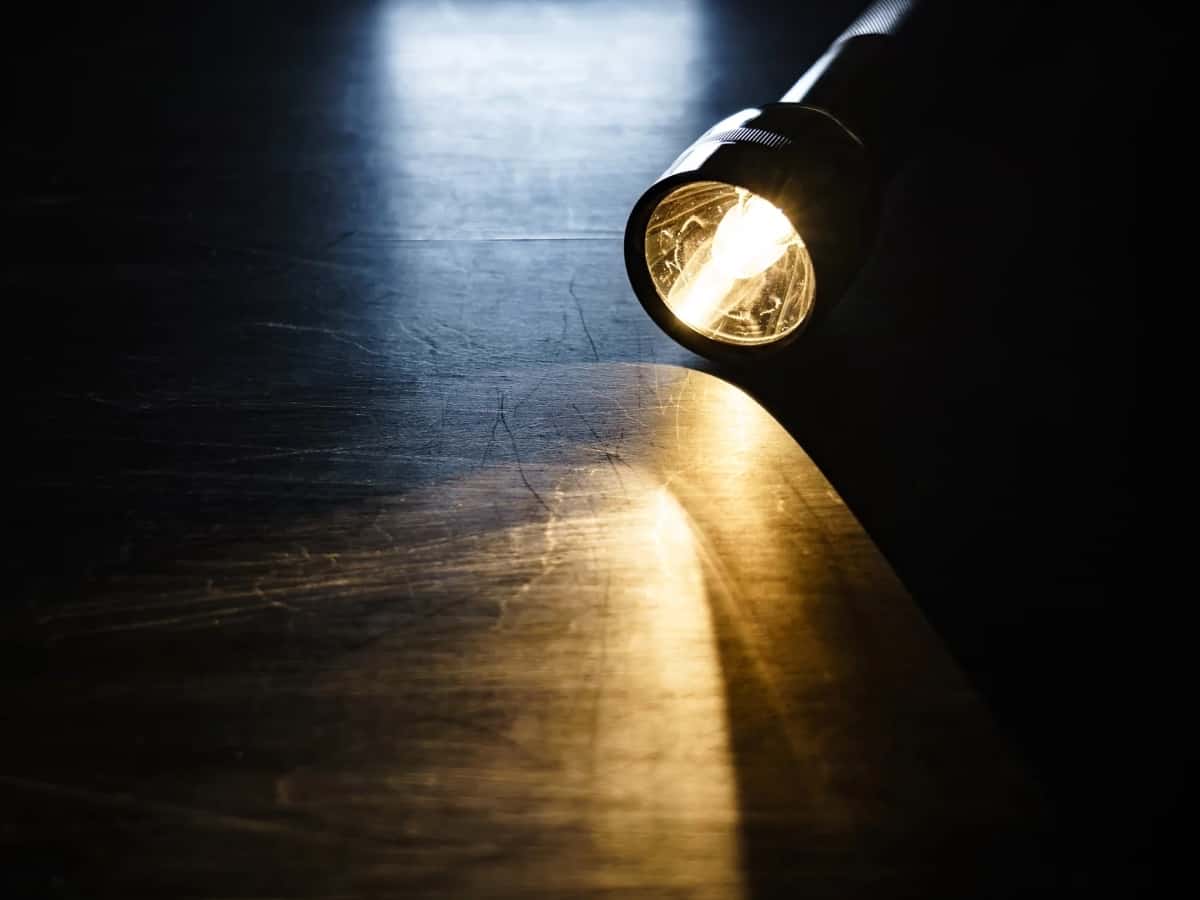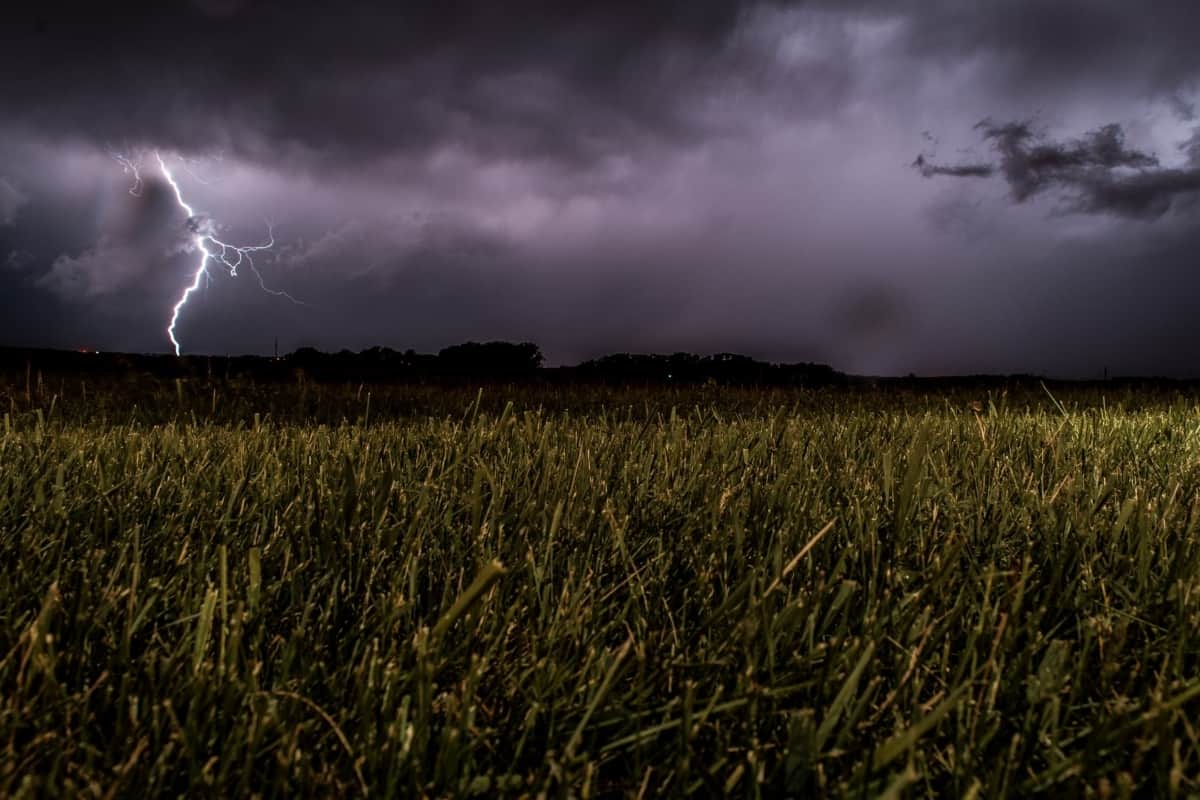Lightning strikes can be frightening to see when you’re driving down the highway or sitting on the front porch at home. This light in the sky is usually a telling sign that it’s time to head indoors, as the electrical discharge has a long history of bringing damage. This makes it all the more critical to know how you can protect your home when a lightning storm strikes. Being able to safeguard your home is essential to avoid the perils of lightning damage.
Many homeowners will want to avoid lightning damage because it can be costly depending on how it impacts your property. In severe cases, a strike can start a fire around your home. Other situations can result in lightning damaging an appliance in your home or interfering with wiring within the walls.
A great way to build a safety net around your home against lightning damage is with homeowner’s insurance. As you continue reading this article, you’ll discover that a homeowner’s insurance policy will cover specific lightning-related damage.
Common Lightning Damage Claims
A lightning strike can be awe-inspiring natural phenomenons on their face. However, when it comes to its effects on the homeowner’s property damage, insurance companies tend to classify the potential damage into three separate types:
Lightning Strike
Lightning strike claims are when you experience a direct hit by a bolt of lightning that passes through your property en route to the ground. This is probably the most destructive type of lightning damage. A direct strike can lead to fire and charring of your home. The damage caused by this type of lightning strike is readily evident and the easiest to claim with insurance adjusters.
Ground Surge
A ground surge is the most common claim related to lightning damage. A ground surge occurs when a strike generates a surge of electricity throughout a larger area. This has the potential of damaging sensitive electronic equipment, house wiring, or other unprotected electronic devices. Unfortunately, damage resulting from a ground surge is difficult to prove. So even though they comprise the bulk of lightning damage-related claims, this category of claims pays out at a lower rate.
Near Miss
A near miss is a strike that hits in the home’s proximity without actually hitting a structure. While the damage is certainly less than a direct strike, it tends to be a more difficult claim to press with insurance adjusters. The reason for this is non-lightning damage-related exclusion. The average homeowner’s policy will typically exclude electrical current damage that is artificially generated. For example, if it’s caused by a utility company, and the damage caused by a near miss strike is very similar. Therefore, pinpointing proof that the damage was a covered peril instance can be difficult.
Going through any of these scenarios can be unsettling at best and terrifying at worst, but your homeowner’s insurance policies provide several protections for you and your possessions. Now that we know how insurance companies classify lightning strikes and related lightning damage, let’s turn our attention towards the coverage normally afforded lightning damage victims.

Home Insurance Coverage and Your Household Items
The worst-case scenario of a direct lightning strike against your home is it starting a fire that threatens your family and destroys your property. In these cases, your insurance company will quickly move to help you to repair or replace your home. However, the average homeowner policy will also provide you and your family with additional benefits.
This Additional Coverage Includes:
- Personal Property: Personal property inside your home can run the gambit from your home furnishings to your electronic devices to appliances. This coverage is subject to owing to damage caused by a lightning strike. Normally, most insurers will offer coverage for those personal possessions at a rate of approximately 50-70% of the insurance coverage you have on the primary home structure.
- Living Expenses: You are likely to be displaced in the aftermath of a major lightning strike on your home. A homeowner’s policy will cover the cost of lodging while you wait for your home to have repairs. These costs typically have a cap at one-fifth of the home’s value.
- Additional Structures: Home insurance has limited coverage that will assist should you have other free-standing structures on your property (garden sheds, gazebos, or detached garages) that are destroyed or damaged. This category of coverage is normally capped at 20% of the house’s coverage limits.
The goal of your homeowner’s insurance is to get relief quickly in the aftermath of a disaster. And because the danger of lightning has been acknowledged since at least as early as the days of Benjamin Franklin, the insurance industry is well equipped to help you in these trying times.
As mentioned, purchasing additional insurance for the sole purpose of adding protection against lightning strikes is probably unnecessary. However, you will still always want to discuss your insurance needs with a qualified insurance agent.
What to Expect When Filing Insurance Claims for Lighting Damage
Once the shock of a lightning strike is over, you will need to contact your insurance adjuster. Most policies mandate you reach out within 60 days of any incident. Once reported, an insurance adjuster will come to your property to assess any damage.
Based on the level of damage, and whether the cost to repair your property exceeds your policy deductible, you will need to figure out whether you will want to file a claim. Should you decide in the affirmative, your adjuster will offer a settlement to make any needed repairs.
Normally, this payment is made in two increments. Half is paid upfront to begin repair work. The remainder designed to cover any remaining cost associated with fixing your house. Please note that if the lightning damage causes structural damage and personal property loss, you will typically get two checks to pay for the two categories of loss.
Finally, let’s say your adjuster offers to make a settlement on the spot, and more damage becomes evident later. For example, maybe you notice wiring damage at home. In this situation, you can always open up a subsequent claim. Likewise, any money paid out for the aforementioned living expenses will result in the insurance company cutting a third check to cover those expenses.
Looking for insurance but not sure where to start? Read our guide for easy money-saving tips to help with your search.

Safety in the Face of Lightning Strikes
It’s important to take any safety precautions you can think of when a lightning storm is approaching or happening. Let’s explore some of the things you can do to protect yourself and your family in the event of a dangerous incident.
- Have Important Safety Equipment On Hand. Property can be replaced but the safety of your family can’t be risked. Therefore, you should always have working smoke detectors throughout your home. Additionally, you have ready access to fire extinguishers and flashlights on each floor of your home, and every member of the household should be instructed in their use and placement.
- Know How To Protect Your Appliances. Fortunately, you can protect your important appliances and key electronics through the use of surge protectors that are designed to be compatible with each device. Keep in mind that a near miss or ground surge is your most likely source of damage. These claims are also the most difficult to prove. Protecting vulnerable appliances in advance of a near miss is a great defense.
- Stay Aware. Knowing that lightning strikes occur more often during the summer months towards the late afternoon or evening, consider staying off that municipal golf course and getting inside when you begin to first hear the rumbling of thunder during those summer months. Stay alert during storm season. This will ensure you and your family remain safe regardless of what Mother Nature throws in your direction.



